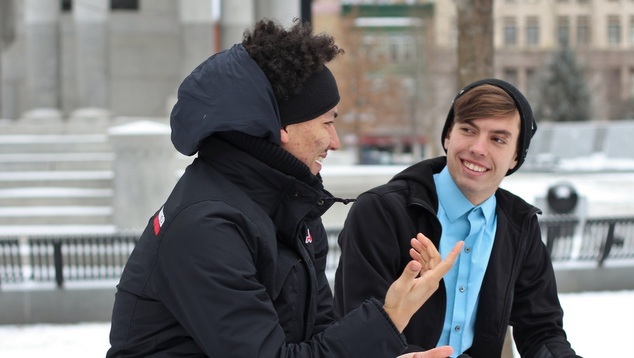
A study has shown that a ten minutes conversation can effectively change one in ten people’s views on transgender political issues.
The technique was developed at the Los Angeles LGBT Center while they were campaigning to overturn California’s Proposition 8 law which, for a short period of time, made same marriage illegal.
David Fleischer, the director of the Leadership LAB at the centre told NPR community radio network that they brainstormed ideas for a long time before coming up with the successful technique.
Their technique was to develop ‘listening brigades’, activist who went out and met people who had voted to outlaw same-sex marriage. The activist would listen to why they people had been concerned about the issue and then share their own personal stories of how the law had effected them.
The results of the technique were published in a scientific study in 2015, but not long after the report was withdrawn when it was revealed the research did not stand up to scrutiny.
Now some of the researchers who debunked the initial report have authored their report which shows that the technique does actually work.
The new study, that was conducted in Miami’s Dade Country, shows that a conversation that builds empathy for transgender people can change people’s minds about recently introduced laws that discriminate against transgender people.
The work was completed by Jake Broockman of the Graduate School of Business at Stanford University and Joshua Kalla at the School of Political Science University California Los Angeles – Berkeley.
In the new study 56 canvassers, some of them were transgenders – other not, door knocked 501 people in Miami.
Some of the discussion were about transgender rights, while as a control element some were approached about recycling issues. The participants completed a survey about their attitudes before and after the conversation, and they were also followed up three months later.
One of the key differences between the retracted study and the new research is that the canvasser did not necessarily have to be part of the group being advocated for. The conversations conducted by non-transgender canvassers were as effective as this conducted by transgender canvassers.
As the study notes, it’s findings could have implication for how political campaigns are run as recent decades have seen a growth in mass communication strategies. It appears old fashioned door knocking still has a place in changing people minds.
OIP Staff
Image: Unsplash.com




